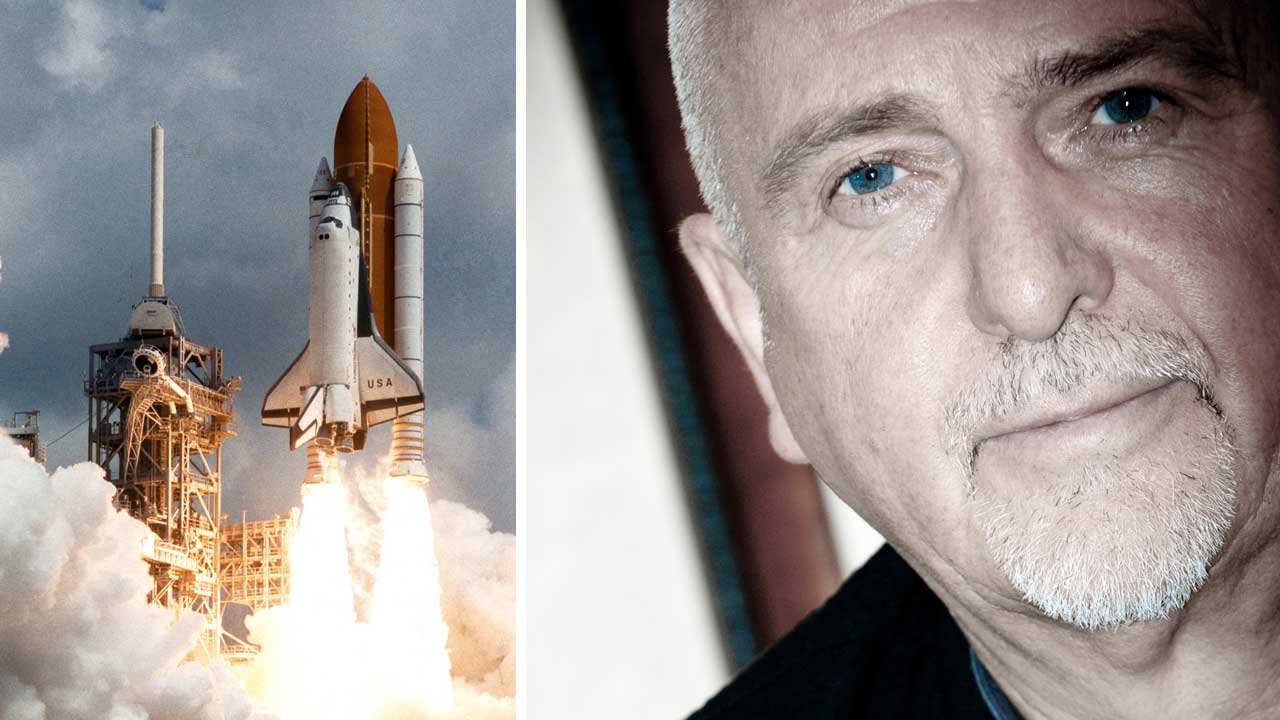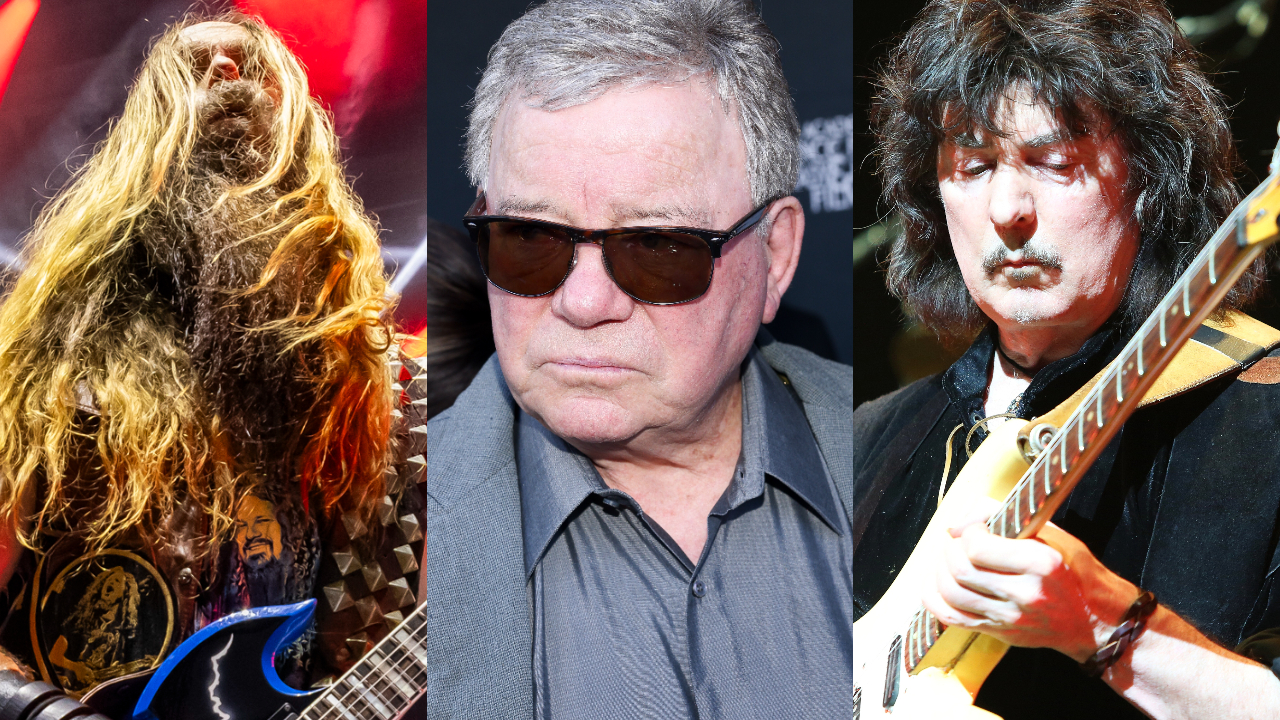In the late 1970s NASA asked Peter Gabriel if he'd like to go into space: Then the Shah of Iran was deposed
Peter Gabriel on his favourite films, how his dad invented on-demand TV, and the space adventure that nearly was

Select the newsletters you’d like to receive. Then, add your email to sign up.
You are now subscribed
Your newsletter sign-up was successful
Want to add more newsletters?

Every Friday
Louder
Louder’s weekly newsletter is jam-packed with the team’s personal highlights from the last seven days, including features, breaking news, reviews and tons of juicy exclusives from the world of alternative music.

Every Friday
Classic Rock
The Classic Rock newsletter is an essential read for the discerning rock fan. Every week we bring you the news, reviews and the very best features and interviews from our extensive archive. Written by rock fans for rock fans.

Every Friday
Metal Hammer
For the last four decades Metal Hammer has been the world’s greatest metal magazine. Created by metalheads for metalheads, ‘Hammer takes you behind the scenes, closer to the action, and nearer to the bands that you love the most.

Every Friday
Prog
The Prog newsletter brings you the very best of Prog Magazine and our website, every Friday. We'll deliver you the very latest news from the Prog universe, informative features and archive material from Prog’s impressive vault.
Peter Gabriel left Genesis after 1974’s The Lamb Lies Down On Broadway. His first four solo albums were all, somewhat confusingly, titled Peter Gabriel, although down the years they have acquired commonly used ‘nicknames’ informed by their sleeve art. His third album (often referred to as Melt), released in 1980, is his favourite of that period.
The song Biko led to Gabriel working for Amnesty International, and he has subsequently been involved with a series of initiatives: founding WOMAD (World Of Music, Arts and Dance); his Real World recording studios and multimedia company; developing theelders.org, launched by the late Nelson Mandela.
In the 80s he provided a shot in the arm for the music video medium with cutting-edge videos including the one for Sledgehammer. The albums Us and Up followed, and he scored movies by Martin Scorsese and Alan Parker.
In 2010 Gabriel “ditched the groove” and released Scratch My Back, an album of orchestral covers of other artists’ songs, while the following year saw the release of New Blood, an album of similarly ambitious orchestral reworkings of some of his own songs. We spoke to him at the time.

New Blood spun off playing the Scratch My Back ‘covers’ album live with an orchestra and no conventional rock instruments. How did you choose which of your songs to reinterpret?
I deliberately wanted an album that would stand up as a journey of moods, and not just an orchestral translation of the biggest ‘hits’. We went for things that had texture, atmosphere. So it’s more Intruder, San Jacinto, The Rhythm Of The Heat, and less, you know, Sledgehammer. Don’t Give Up is there, but that felt as if it fit. Although I know a lot of people listen to independent tracks now, I’m still a big fan of the journey, where I can put something on at home or in the car and be taken on a trip.
And it was born of necessity, because the Scratch thing was only about an hour long, and live we needed to play longer. So we thought, might as well try arranging some of my stuff. Then we worked hard, John Metcalfe the arranger and I, to define the rules of combat.
Sign up below to get the latest from Classic Rock, plus exclusive special offers, direct to your inbox!
John Metcalfe arranges the songs ‘under your instruction’. How does that work? Who’s the daddy?
We talk a lot. Then there’s a brief. Then he’ll play some stuff, and I’ll either amend it there and then or gradually feed him some melody ideas that I’ve bashed out at the piano. Occasionally, as on Heroes, I’ll say his first draft is brilliant. So I had nothing to do with that. Generally I wanted contrast and sparseness, but then as a singer you’re incredibly exposed in places. I’m a terrible reader of music, so in the studio, as a guide, I’d have colour bars: yellow strips to indicate intros, green for verses, red for choruses and so on. On stage I moved the monitor with these to where it would be less obstructive, but the musicians all said, no, don’t take that away, we’re all using that.
There’s also a 3D film out of a spring show you did. Does it feature blue aliens leaping out of the screen?
There’s a couple of things like that. Originally we thought we’d have one song where every gimmick known to man jumped out at you – we’d get rid of them all like that. But we went off that idea. I think 3D is like stereo: we have two ears, so it’s a more normal environment for us to listen in stereo audio. And so it’s more normal to see things in 3D. In a way, 2D is the gimmick, 3D is natural.
Which are your favourite films?
Oh, good question, because it’s very broad and I always have a horror of ‘favourite’ or ‘best’ lists – because I’ll forget something, and then kick myself afterwards. But… I love Fellini. Hitchcock – Rear Window perhaps coloured the song Intruder. El Topo, by Jodorowosky, made a big impression on me when I was young, and I think influenced The Lamb Lies Down On Broadway.
I like visual poetry, but also just good storytelling. Twelve Angry Men. Ace In The Hole. I’m just riffing here; don’t say these are my all-time favourites. Raging Bull. Yes, I scored The Last Temptation Of Christ – fantastic film. Great to work with Scorsese. We did edits at the Brill Building. Michael Powell [of Powell-Pressburger] was around, offering his comments. He had a brown paper bag full of fruit – apples, cherries – for everyone.
You’ve always been into cutting-edge technology, haven’t you? Where did that interest come from?
I love it, yeah. My dad was an electrical engineer and inventor. In fact he had the first entertainment-on-demand plan in Europe. But this was 1970, and the company he was working for at the time, Rediffusion, said, oh there’s no way people will ever pay for TV, they get it for free. He was a little ahead of his time, unfortunately. So, I’ve always been curious. I don’t have his abilities, but I have his fascination and enthusiasm.
Is it true you once almost went up into space?
Well… it was an idea. It was the beginning of the Space Shuttle, and they were trying to get some artists, musicians, writers up there to popularise it. NASA approved it because they wanted to secure their budget for the whole Shuttle prerogative. A friend who worked at NASA asked if I’d be interested. I thought, well, that’s a pretty amazing offer!
It was all being funded by this rich Iranian, but then the Shah was deposed and his money was taken away so the project was canned. Strangely enough, in the last month I’ve been emailing with a guy in the Space Shuttle. They have an ‘enrichment’ programme. Keeps them amused, I think. We’ve had phone calls, too, but the first time he called – from space – I was out.
Do you look back fondly on the huge commercial success of the So album?
That was my short burst of being a pop star. That was a different sort of life again: fun to visit, but not a place you’d want to reside permanently.
This interview originally appeared in Classic Rock 164, published in November 2011.
Chris Roberts has written about music, films, and art for innumerable outlets. His new book The Velvet Underground is out April 4. He has also published books on Lou Reed, Elton John, the Gothic arts, Talk Talk, Kate Moss, Scarlett Johansson, Abba, Tom Jones and others. Among his interviewees over the years have been David Bowie, Iggy Pop, Patti Smith, Debbie Harry, Bryan Ferry, Al Green, Tom Waits & Lou Reed. Born in North Wales, he lives in London.


